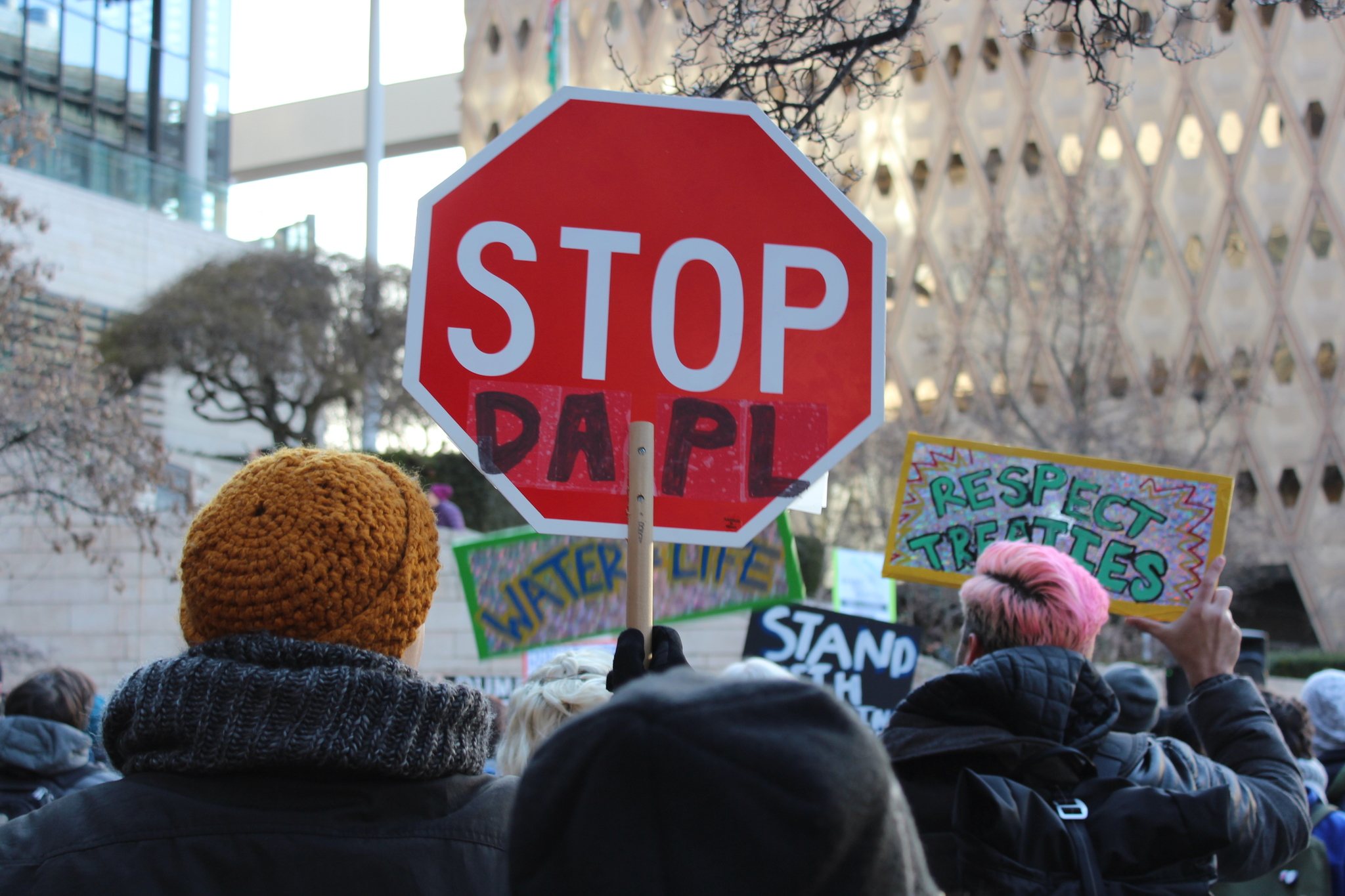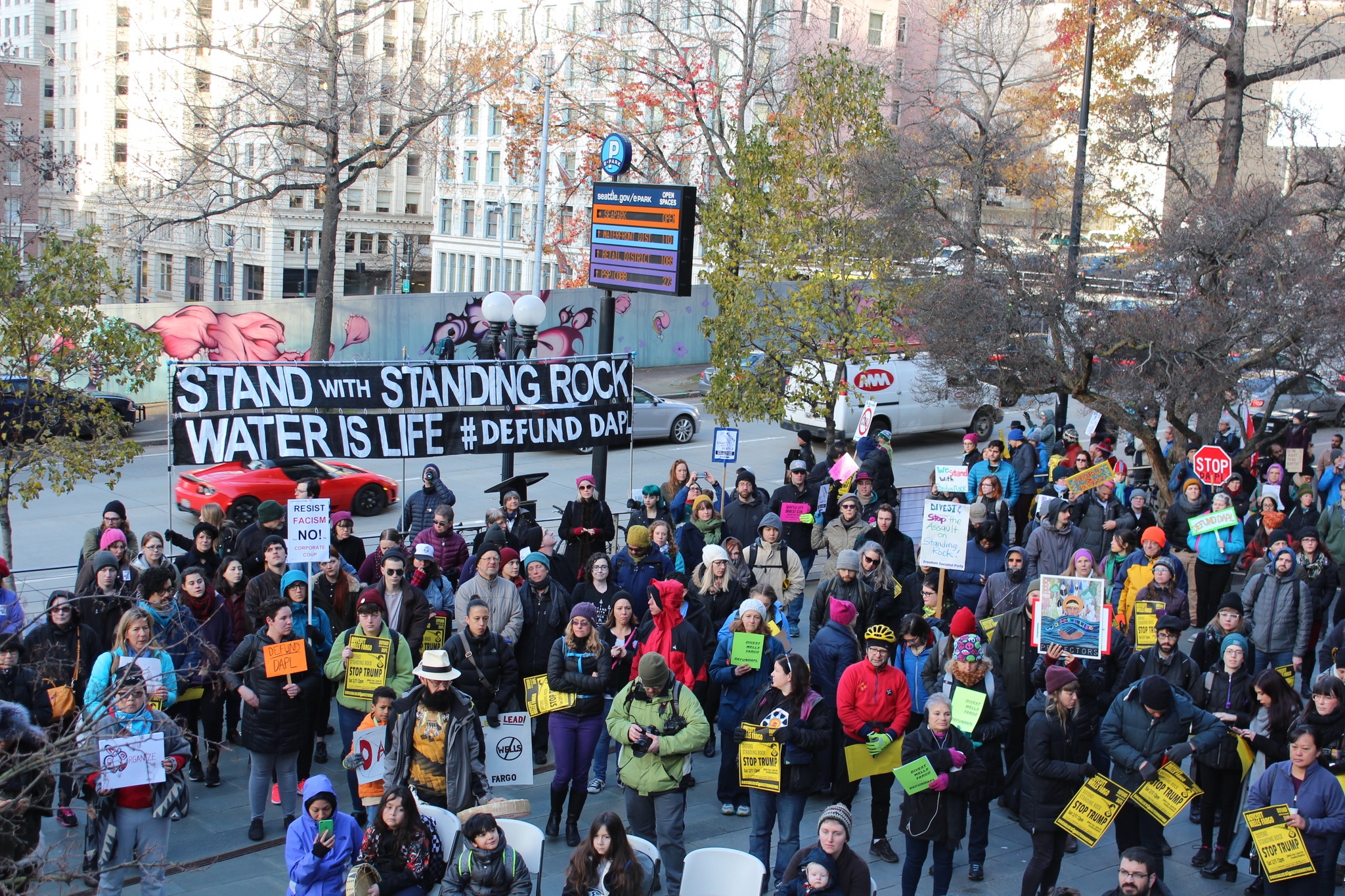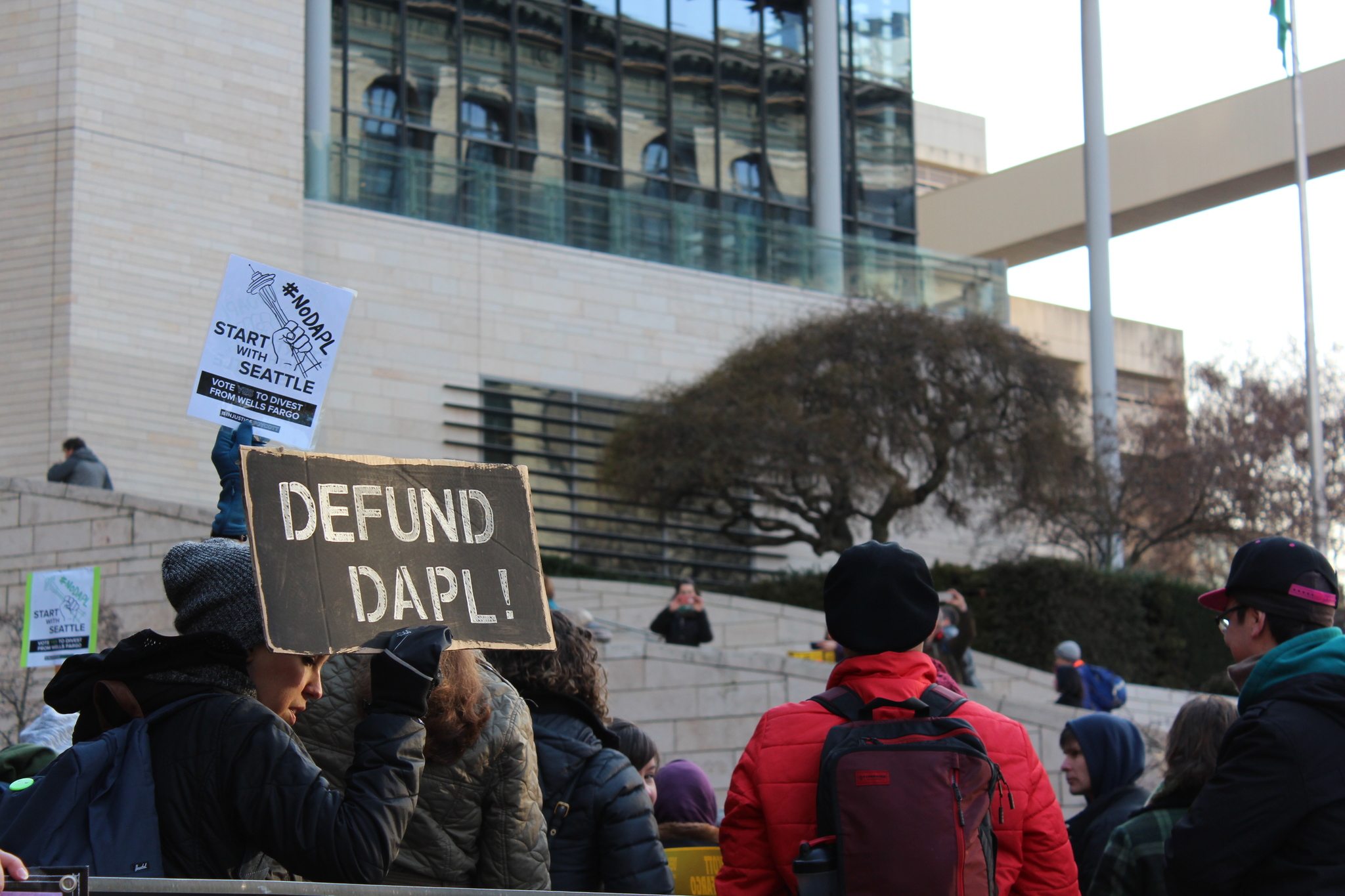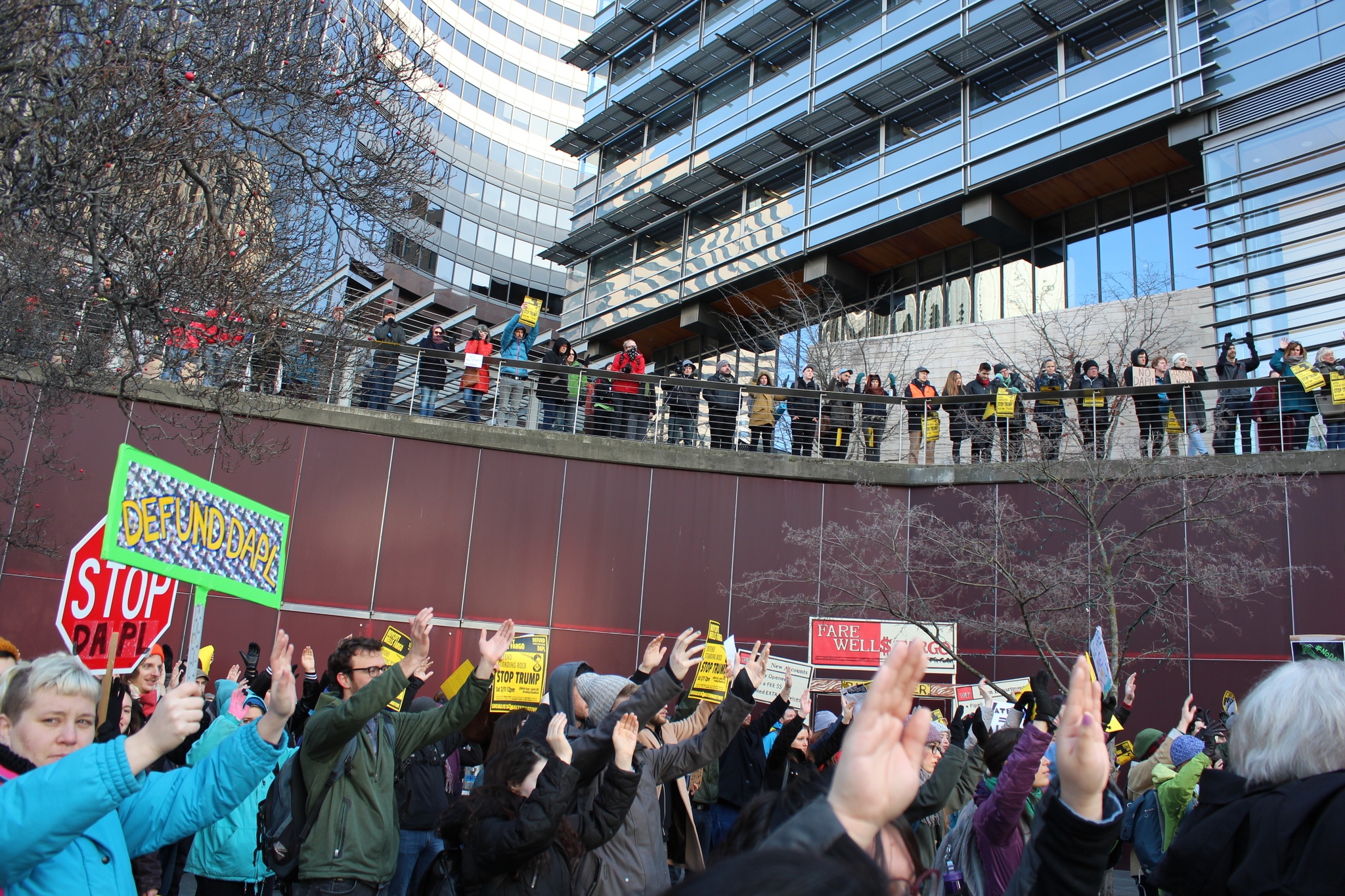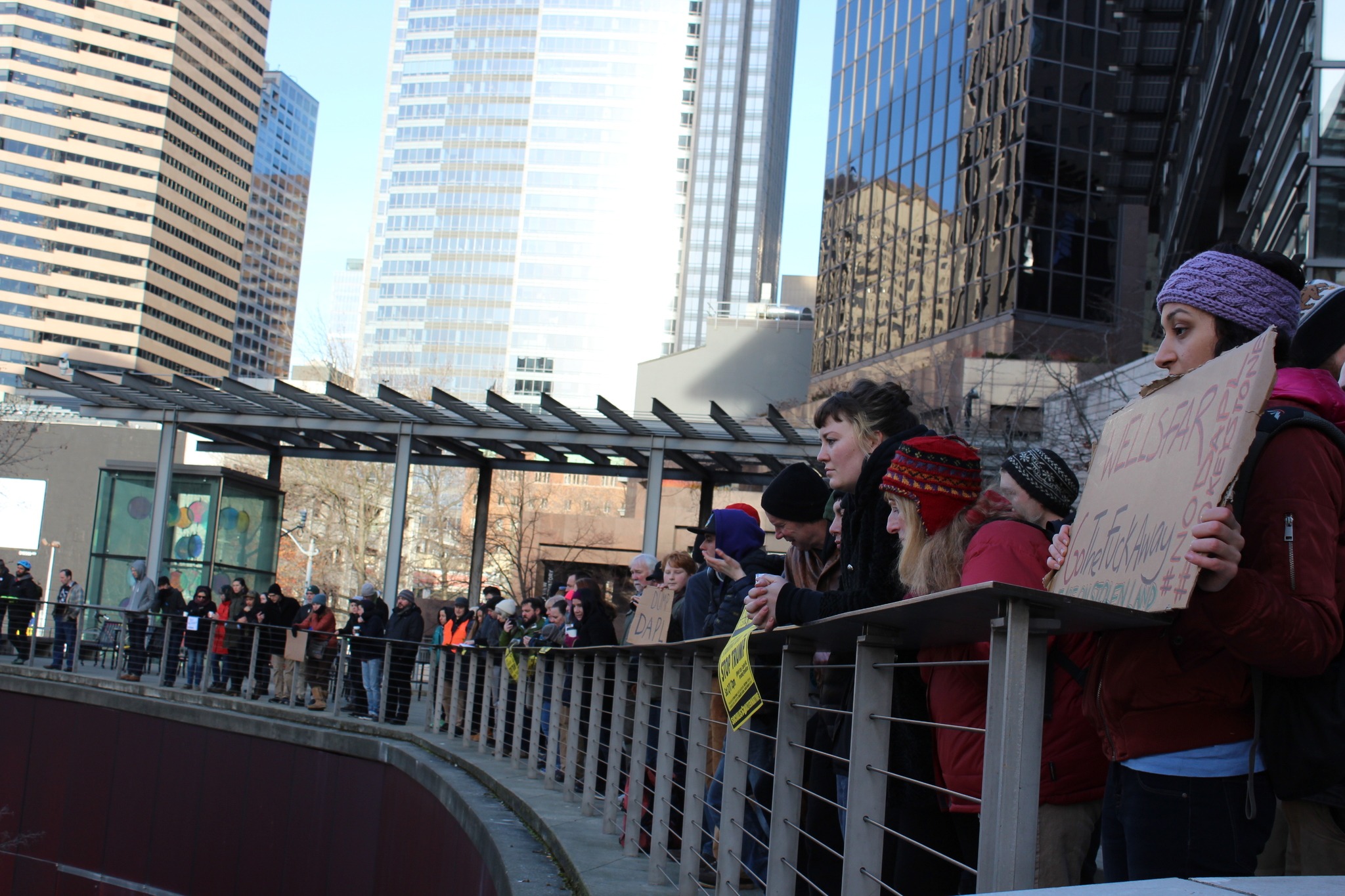There wasn’t much debate at City Hall on Wednesday when it came time for the City Council’s finance committee to vote on an ordinance that would pull billions of city dollars out of Wells Fargo.
“It’s obvious we’re going to remove our finances from Wells Fargo,” Councilmember Rob Johnson said matter-of-factly near the beginning of the Affordable Housing, Neighborhoods & Finance Committee meeting, in front of a fiery crowd that had packed the chambers, overflowed into the main hall, then packed the Bertha Knight Landes Room. (“We have most certainly broken the world record for attendance at a finance committee meeting,” joked 350 Seattle organizer Alec Connon.)
“We’re all here today to make sure we divest from Wells Fargo,” added Councilmember Debora Juarez, specifying that there are many reasons to do so, including Wells Fargo’s $467 million in direct financing to the Dakota Access Pipeline. “Please understand that.”
So the question on councilmembers’ minds wasn’t whether or not to divest from Wells Fargo—which the committee voted unanimously to do. “The challenge,” Johnson said, “is to find alternatives.”
And that could be tough: The most socially responsible banks tend to be credit unions and smaller, local banks, which don’t always have the resources to back a $3 billion municipal relationship, councilmembers said. (To clarify: $3 billion is the amount of money that flows in and out of the city’s accounts in the course of a year, not the average daily balance; that is more like $10 million, according to a Wells Fargo spokesperson.) State law currently prohibits any government entity from depositing more than $250,000 of public funds in a qualified credit union, and requires that any institution a public entity banks with has at least $300 million in capital reserves. There is a bill going through the state House right now, however, that would authorize credit unions to receive more than $250,000 in public deposits if they join in a “depository pool” — a way to ensure against potential losses of public funds.
In the meantime, there are only seven banks that could work under the ordinance’s criteria, according to Councilmember Lisa Herbold’s office. And just four banks — all huge national corporations — even applied when Seattle last put out its bid.
“I’m excited to step away from Wells Fargo,” Councilmember Mike O’Brien told the committee, “but under the current scenario, it’s likely we would end up with another bank that’s not much better. If we could get a local bank or a credit union, I think that would be a step in the right direction, but I still think the best solution, ultimately, is a publicly-owned bank.”
The room erupted in cheers.
O’Brien then pointed out another piece of legislation that, he said, Sen. Bob Hasegawa has been working on for a number of years: The creation of a public bank in Washington state. He urged the eager audience to contact the state Financial Institutions & Insurance Committee to ask that it schedule a hearing for SB 5464. “We have allies in Olympia, but we could use all of our voices down there,” he said. If that bill passed, “we could look at some real change in our banking practices.”
Wherever the city decides to move its money, it’s clear the vote was momentous.
A full Council vote will take place next Monday, but if Wednesday’s committee discussion was any indication, Seattle will likely become the first city in the country to move all of its money from a financial institution in part for its ties with the Dakota Access Pipeline. “We did it,” Lakota activist Matt Remle told the crowd rallying outside.
Seattle City Council finance committee approves ordinance to divest $3b from Wells Fargo, full vote Mon #DeFundDAPL activists: "we did it" pic.twitter.com/BqMcQvJUrL
— Sara Bernard (@saralacy) February 1, 2017
Aided by Brooklyn-based activist Shaun King, the #DefundDAPL movement has now become the #StartWithSeattle movement, too. This week alone, according to Connon, Seattle City Councilmembers received some 200,000 tweets from across the country urging them to support the ordinance, and 13,000 people RSVP’d for the Facebook event that the Defund DAPL Seattle Action Coalition organized (yes: 13,000 people from across the country RSVP’d for a Seattle City Council finance committee meeting).
There’s a renewed sense of urgency among activists now that President Donald Trump has directed the Army Corps of Engineers to expedite its review of the Dakota Access Pipeline, which is over 90 percent complete. On January 31, the Sacred Stone Camp began calling for activists to return and stage the next demonstration.
But when it comes to the money behind the project, Seattle’s move could have a huge impact. Connon says that he and his fellow Defund DAPL organizers have put together a Divest Your City Toolkit, now a tab on DefundDAPL.org, which offers grassroots organizing tips and Seattle’s draft ordinance as a model to anyone who wants to get their city or tribe to move its money from any of the 17 banks that financed the pipeline. The grand total of individual divestments from those banks is now more than $57.6 million, according to DefundDAPL.org; if Seattle adds its $3 billion, and if other cities follow, the affected financial institutions may begin to take note.
“The example that Seattle can set today,” said Councilmember Kshama Sawant, to whoops of applause, “can be a beacon of hope to activists around the country.”
